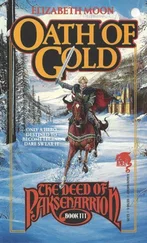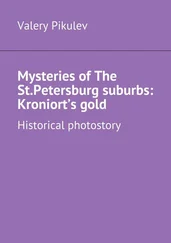So far, I hadn’t seen hide nor hair of either of the women. That didn’t mean they weren’t around. It also didn’t mean they were. Elise was not the world’s brightest little lady, for all her academic qualifications, and her specialty was Renaissance sculpture; of all the group, she would be least likely to recognize or respond to the Trojan gold. Rosa was brilliant, but utterly devoid of imagination. I could see her glancing at the photograph and tossing it aside as just another crank communication.
There was only one jarring note in my composition. I simply could not see that gracious, kindly old gentleman as either a practical joker or a seller of stolen goods. That was why I was on my way to Bad Steinbach to confront him personally instead of calling or writing.
Still no purple Beetles in the mirror. Nor a sleek black BMW. If John intended to follow me, he wouldn’t use a car I might recognize….
One might reasonably ask why, since I had taken the trouble to locate John, I was now so determined to avoid him. I asked myself the same thing, and I knew the answer, even though I hated to admit it.
Putting that insane advertisement in the newspapers had been tantamount to yelling, “Anybody down there?” into the depths of the Grand Canyon. I had not really expected a response. In a way, I had not really wanted one.
Why do people have a hopeless need to glamorize things and people? It was impossible to turn John into a romantic hero when he was on the scene; he simply refused to behave like one. He was always making silly remarks or setting up a situation in which he looked like a fool. He could move fast enough and hit hard enough when he had to, and he could think even faster, but my most vivid memories of him were memories of deliberate foolishness. The only pure, unmarred memory was the last, when, stripped and sleek and deadly, he went over the side of that leaking boat into the icy water and risked his neck for someone else.
If he had never turned up again, I could have cherished that image and worked it into something beautiful. Or if he had come rushing to my side murmuring clichés—“I tried to forget you—I tried to stay away—It was for your sake, my dearest, I’m not worthy to black your boots—but I couldn’t resist you, your image has been enshrined in my heart…” Hell, I could invent page after page of dialogue like that. So could John.
Instead he had popped out of nothingness like a demon in a horror movie, shocked me into a coma, pinched my bottom, handled me with the tolerant amusement of a man who had rediscovered some forgotten trinket—a toy he had enjoyed playing with once upon a time…. And he had turned me down flat when I asked for his help. Let’s not forget that. He had turned me down. If he had had second thoughts, it was for reasons of his own, and that possibility made me very uneasy. I didn’t believe his claims of virtue and respectability for a moment. He was still a crook, and a crook was the last thing I needed.
I was startled out of my sullen meditations when a car whizzed contemptuously past me and cut back into my lane so sharply that it grazed my left front fender. The driver was a little old lady with blue hair; she made a remarkably rude gesture at me as she went by. After that I concentrated on driving.
The streets of Garmisch were full of vacationers, winter-sports fans, and cows. The cows are part of the local color, and they have the right of way. They were not the only distractions; the shop windows bulged with goodies, including some gorgeous ski and après-ski costumes. I managed to get through the town without incident, bovine or otherwise, and took the road to Bad Steinbach.
The highway climbed steadily up into the foot-hills, passing through pine-shrouded shadows and out again into the sunlight of open meadows frosted with white. The sky ahead was a deep pure blue, framing the majestic outlines of the snow-capped Alpine peaks. I wished my mood matched the serenity of the scenery; the closer I got to Bad Steinbach, the more my vague sense of apprehension deepened.
The village huddles on a few acres of level ground, with the high hills enclosing it like a rampart. Some of the streets leading off the central square go up at a thirty-degree angle, and outlying houses cling precariously to the slopes. The roads that give access to them looked like tangled white ribbons against the deep green of the pine-covered hills. A broader panel of snow slashed across the side of the Hexenhut—the ski slope, one of the trickiest in the area because of the trees bordering it so narrowly. A lift operates from the station behind the hotel; I could see a bright car swinging in its ascent as I pulled into a parking place near the central fountain, with its oversized statue of Saint Emmeram. The fountain was dry now, and a fringe of icicles lengthened the saint’s beard.
(In case you are interested—and I can’t imagine why you should be—Emmeram was one of the first missionaries to the heathen Bavarians. He died in 715 or thereabouts.)
Most Bavarian villages look as if they had been designed for a production of Babes in Toyland . The Marktplatz of Bad Steinbach is no exception. On one side the serene, austere facade of the St. Michaelskirche gives no hint of the baroque fantasies within. The two adjoining sides are lined with houses and shops, fairytale quaint with their wooden balconies and painted fronts. Some of the balconies were draped with bright red geraniums, and I gaped at them for a moment until I realized they must be plastic. Facing the church, on the fourth side of the square, is the hotel. The only discordant note is the town parking lot, but it has to be there because they’d have had to blast out a piece of the mountain to get any more level ground.
In the summer, there are tables and bright umbrellas outside the hotel restaurant and the cafés. At least I assume there were, since that is the custom; I had never visited the village in the summer. There were no tables outside that day. However, the restaurant appeared to be doing good business, to judge by the people passing in and out.
Like the English, the Bavarians eat all the time. Unlike the English, they have not invented separate names for their various snack times; instead of elevenses and teatime and whatever, they refer to all of them as Brotzeit . It was just past 11 A.M. A reasonable time for Brotzeit .
The first thing I noticed was that the lobby had been modernized—not extensively, just enough to add a few jarring notes to what had been a charming period ambiance. There was a souvenir counter with racks of cheap beer steins and dolls dressed in Bavarian costume and pillows embroidered with mottoes like “I did it in Garmisch-Partenkirchen.” The old wooden registration desk had been replaced by a shiny plastic structure. Hoffman wasn’t on duty. The man behind the counter was someone I had not seen before—young and heavy-set, inappropriately attired in a short-sleeved gaudy print shirt. I didn’t linger but went straight through into the restaurant.
It had undergone a similar transformation. The tables were more numerous and closer together, and each one boasted a vase of tacky plastic rosebuds. The bar was a modern monstrosity, frosted glass blocks with colored lights behind them.
Eventually one of the waitresses made it to my table. She was squashed into one of those Salzburger dirndls that you’re supposed to buy several sizes smaller than your actual measurements. They are fastened across the midriff with hooks as stout as industrial steel, and the excess flesh thus ruthlessly compressed billows up over the low-cut bodice into the cute little white blouse, and sometimes beyond. When she bent over to ask for my order, I was reminded of a scene from one of my favorite movies—when Walter Matthau, confronted by a similar exhibition, screams, his eyes bulging, “Don’t let them out! Don’t let them out!”
Читать дальше








